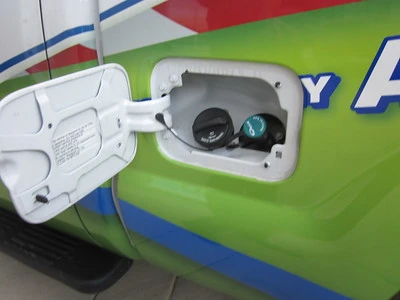DEF can experience evaporation if left unused for long periods. The fluid, primarily made up of urea and deionized water, plays a critical role in reducing harmful emissions from diesel engines. When left to sit, the water component in DEF can dry up, especially under specific conditions like high temperatures or if stored in open containers.
The process isn’t rapid, but over extended periods, drying out of the fluid can lead to an increased concentration of urea in the fluid. As the water content decreases, the urea component becomes more concentrated, which might lead to crystallization or solidifying of the fluid in extreme cases. When DEF crystallizes or its urea content becomes too concentrated, it can reduce its efficiency and, in some cases, can even harm the Selective Catalytic Reduction (SCR) system in diesel engines, which relies on the proper balance of the fluid to function correctly.
For optimal performance and to prevent evaporation, it’s essential to store the fluid correctly. A cool, dry place away from direct sunlight is ideal. Moreover, ensuring that the container is always sealed tightly will minimize the chances and ensure the fluid remains effective. It’s also a good practice to use DEF within its recommended shelf life, which is usually about two years, to guarantee its quality. If the fluid is ever suspected of being too concentrated due to this, it’s best to replace it to maintain the engine’s performance and emission standards.
While DEF can dry up over time, particularly the water component, proper storage and timely use can significantly mitigate these effects and ensure the fluid continues to serve its intended purpose effectively.

Factors Affecting DEF Evaporation
Diesel Exhaust Fluid is a vital component used in diesel engines to reduce harmful emissions. Its evaporation can lead to inefficiencies in engine performance, and several factors can influence dissipation of the fluid. Here’s a deeper look into the main contributors:
- Temperature: The effect of temperature cannot be overstated. High temperatures can cause the water in DEF to dry up faster, leaving behind a higher concentration of urea. On the other hand, extremely low temperatures can cause the fluid to freeze, and while this doesn’t directly lead to evaporation, it can impact the overall effectiveness and usability of the fluid. Therefore, maintaining a moderate temperature is crucial for preserving the fluid’s quality and preventing drying up.
- Exposure to Air: DEF stored in open containers or containers not sealed properly will dry up more quickly than those in tightly sealed ones. This is mainly due to the direct exposure of the fluid to ambient air, which promotes the drying up of its water content. Consistent exposure can lead to a significant loss of the fluid’s water over time, making the remaining fluid more concentrated in urea.
- Shelf Life: Like many other products, DEF has a recommended shelf life. Typically, the fluid can be stored for about two years under proper conditions before its quality starts to diminish. As it nears the end of its shelf life, the chances of drying up and urea concentration increase. It’s crucial to use the fluid within this period and to store it under the right conditions to prevent premature evaporation and degradation.
DEF is designed to be stable under typical conditions, specific external factors can accelerate its evaporation. Proper storage, considering temperature, limiting exposure to air, and adhering to its shelf life, can help maintain its efficacy.
Read related article: What Happens When You Delete DEF?
Consequences of DEF Evaporation
The evaporation has several repercussions, particularly for diesel engines that rely on it to minimize harmful emissions. As the fluid disappears, the following consequences arise:
- Concentration of Urea Increases: When it occurs, the water component diminishes, leading to a higher concentration of urea in the remaining fluid. A disproportionate urea-to-water ratio can compromise the fluid’s effectiveness in treating diesel exhaust.
- Potential for DEF to Crystallize: As the concentration of urea increases, there’s a heightened risk for the DEF to crystallize or solidify. Crystallized DEF can clog the Selective Catalytic Reduction (SCR) system, leading to a series of engine-related issues. Removing these crystals can be challenging, and in some cases, might even necessitate the replacement of parts of the SCR system.
- Impact on Diesel Engine Performance: The primary role of the fluid is to convert harmful nitrogen oxide emissions from diesel engines into harmless nitrogen and water. When the urea concentration becomes too high, it becomes less effective in this conversion process.
This inefficiency can result in increased emissions, which not only harms the environment but can also lead to potential regulatory violations for vehicles. Additionally, if the SCR system becomes clogged due to crystallized DEF, it can compromise the engine’s performance, leading to reduced fuel efficiency and even potential engine damage.
The evaporation of DEF and the resulting increased urea concentration can lead to a chain reaction of problems for diesel engines and the environment. Maintaining the integrity and ensuring its proper storage is crucial to avoid these pitfalls.
To Make a Conclusion
DEF can evaporate after periods of disuse, leading to an increased concentration of urea, potential crystallization, and a subsequent decrease in efficiency when treating diesel exhaust. As diesel engines rely on DEF to meet stringent emission standards, ensuring its optimal condition is paramount.
Proper storage and timely usage can mitigate the risks associated with evaporation, ensuring both the longevity of the engine’s SCR system and adherence to environmental standards. The health of our engines and, by extension, our environment, hinges on attention to such details.
